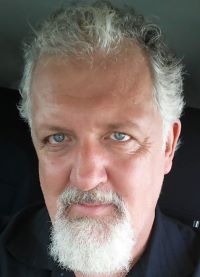AIS Virtual Roundable on "Diversity, Equity and Inclusion"
Reviewed by:
Dr. Geoffroy de Laforcade
Professor of Latin American, Caribbean and World History
Department of History and Interdisciplinary Studies
Norfolk State University

Editor’s note: On February 26, 2021, AIS held the first session of our Virtual Roundtable series. Information on the session, including a link to a recording of the roundtable, can be found here. Dr. de Laforcade was in attendance and offers the following reflections.
The AIS Virtual Roundtables Series session on “Diversity, Equity and Inclusion: A Journey Towards Allyship” was a deeply personal and compassionate discussion on how to engage as allies with discriminated and oppressed groups, as well as with persons who may not seem, at first glance, to be open to an inclusive agenda.
Moderated by Dr. Allison Upshaw, the conversation revolved around the idea of developing an “archaeology of self”, of excavating gently, rather than confrontationally or defensively, the different levels of understanding of racism. Dr. Falami Devoe used the terms “untangling” and “digging deeply” to express the process of overcoming the naturalized stereotypes and simplistic approaches to oppression in which we are commonly socialized.
Critical to allyship is the understanding that no pain or suffering affects just one person or group; it affects us all. “What hurts you, murders me” is a quote that I wrote down and powerfully expressed her line of thinking. Even when discussing the matter of how good intentions among allies can backfire if systemic racism isn’t “unpackaged” and privilege isn’t acknowledged, it is always important to separate the good from the bad, to preserve what reinforces solidarity and unveil what may result in obstacles to the intended goal. She conveyed her plea for patience and care in the establishment of dialogue, and respect for the pace of each person’s journey, in the following way: It is one thing to accept something and an entirely different one to comprehend it.
One recurring topic was the need to assess the costs and dangers of allyship. What is lost by rushing judgement and escalating confrontation? How do we preserve our ability to foster allyship in the long term? As Dr. Rachel Marias Dezendorf explained, self-care is an important part of any engagement, because the health of the collective endeavor is dependent upon the consideration of boundaries. She also discussed the differences between formal schooling and education, and the pedagogies that can help us achieve awareness of the inequalities embedded even in the institutions within which and for which we act.
De-escalation, civility, finding common ground were overarching themes of the conversation. Dr. Khadijah Miller relayed comments from the audience in ways that expertly drew attention to the importance of bringing interdisciplinary and theoretical approaches to bear upon our conversations regarding privilege, allyship, and intersectionality.
I found the panel particularly instructive in the very form in which it was conducted, with storytelling, personal experience, analytical and expressive expression interwoven into a web of considerations regarding challenges to allyship, and the importance of self-awareness in communication with both friends and foes.
